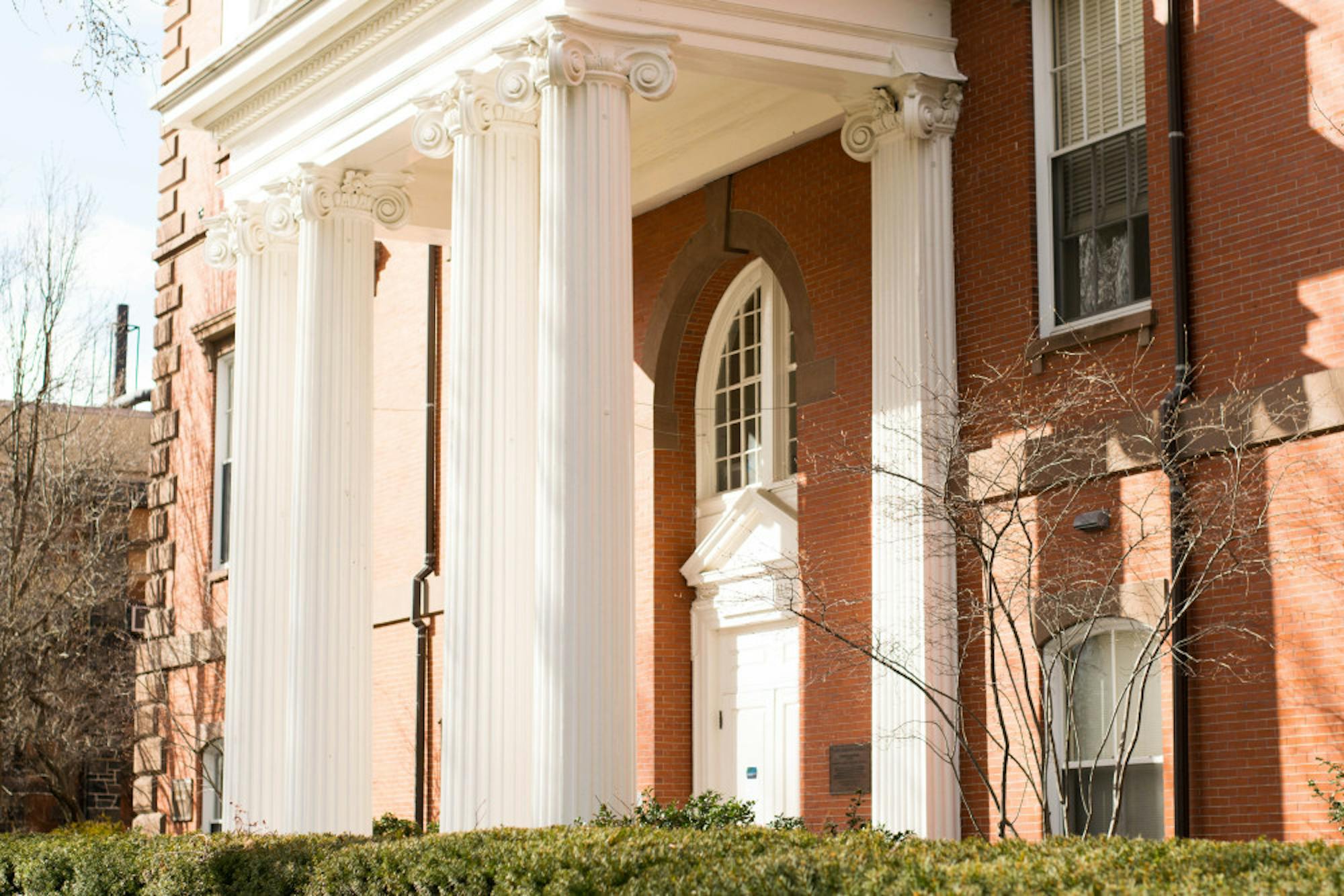New funding is now available to support initiatives on campus aimed at preventing and treating addiction and substance abuse, which Provost and Senior Vice President Nadine Aubry and Vice Provost for Research Caroline Genco announced in an email sent out to the Tufts community on Feb. 10.
Both explained that this new program, called the "Tufts Initiative on Substance Use and Addiction," is a direct result of the Sackler investigation, which led to the removal of the Sackler name from the Graduate School of Biomedical Sciences and the Center for Medical Education building at the Health Sciences campus.
“The University announced in December that it would establish a $3 million endowment to create a new source of seed aimed at the prevention and treatment of substance use and addiction. In this way, the University will create a sustainable effort to help the countless individuals and families who suffer as a result of substance use and addiction,” Aubry wrote in an email.
Genco echoed these statements, indicating that Tufts is not the only school in the Boston area that has looked for solutions to the opioid crisis.
“It basically came from the fact that we have a huge opioid epidemic across the country, and specifically in Massachusetts, and this is something that some of the other universities in Boston have been looking at more closely [we] felt that we needed to do more than we currently were doing.” she said.
Director of the Department of Health Promotion and Prevention Ian Wong commended Tufts' decision to not only cut ties with the Sackler family, but also to establish a program with a specific focus on combating issues of substance abuse.
“I applaud Tufts for not only reconciling with [the] Sacklers, with the name, but also by actually putting something forward to do prevention," Wong said. "We should be proud of the university for putting money toward research to solve or to work toward dealing with some of the substance abuse issues out there."
The Office of the Vice Provost for Research (OVPR) has called on community members to submit proposals that aim to encourage research and civic engagement programs with the goal of supporting the prevention and treatment of addiction and substance use, according to its website.
Unlike most other OVPR funds that only consider faculty proposals, this fund is also open to staff and students, according to Genco and Wong.
“We're really trying to broaden the community of people who could apply for these funds,” Genco said. “We wanted to cast a big net to see who's out there."
Wong expressed similar sentiments, indicating that the OVPR wanted to open up this opportunity to all of Tufts in an effort to receive more proposals.
“Everyone's free to put something in[the application.] I think [that is] what's really exciting, it's a call [for proposals]," Wong said. "Anyone can apply and I think that's what's really interesting about this ... we're looking for answers anywhere.”
Wong also explained that this initiative will greatly support students who suffer from substance abuse and that many of his colleagues are planning to apply to the fund in order to conduct their own research in this field.
“We make [the fund] a more holistic way of helping students with alcohol issues,” Wong said. “It will be really exciting just to see what everyone puts into it because I've talked to some of my other colleagues, and they're excited about applying for money.”
The fund has the potential to turn into a larger effort to battle substance abuse, as its growing influence may lead to new initiatives, according to Genco.
“I think the fund will continue to grow and I think there's a lot of interest in philanthropy in this area because there's a lot of people who have experienced hands-on the opioid crisis with one of their family members,” she said. “We give folks some pilot money to start, and then maybe they can identify other areas to help to continue to grow."
Genco emphasized that senior leadership at Tufts and potential applicants alike are excited to see what proposals will be submitted and which proposals will be granted funding.
“We're really looking for applications that have high impact and can really make a difference, whether it's education or civic engagement or research,” Genco said.
Aubry underlined the goals of the initiative and the OVPR's excitement at reviewing the proposals from Tufts community members.
“We believe our educators, scholars and researchers have important ideas to contribute to addressing the local and national challenges associated with the increase in substance use," she said.
"We are looking forward to reviewing proposals and distributing the first round of funding this spring,” Aubry said.
Tufts announces new initiative to combat addiction, substance abuse

Ballou Hall is pictured on Apr. 20, 2018.





